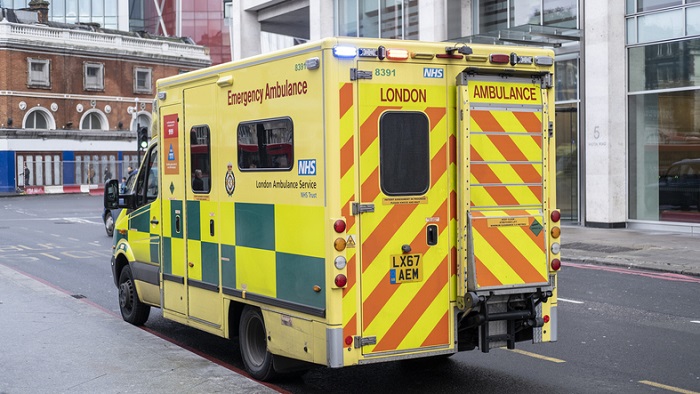The GMB’s national secretary Rachel Harrison has hit back at claims made by health secretary Steve Barclay who accused trade unions of making a “conscious decision” to “inflict harm” on patients ahead of the ambulance strikes on Wednesday.
In an article for The Daily Telegraph, Mr Barclay wrote: “We now know that the NHS contingency plans will not cover all 999 calls.
“Ambulance unions have made a conscious choice to inflict harm on patients.”
Asked for her thoughts on Mr Barclay’s remarks, Rachel Harrison called the comments “insulting to our key NHS and ambulance workers”.


She told Sky News: “They’ve made a conscious decision to stand for what they believe is an NHS that is crumbling beneath their feet”.
This comes as thousands of ambulance workers and paramedics are striking on Wednesday as Britain enters a critical phase of industrial action. Around 25,000 paramedics and ambulance crews are expected to take part in the first national strikes for more than 30 years, with 10 of 11 trusts in England and Wales affected.
Around 600 members of the Armed Forces have been drafted in to drive ambulances during the strikes.
The health secretary met unions on Tuesday afternoon but last-minute talks failed to address the issue of pay.
After the meeting with unions, Mr Barclay tweeted: “I hugely value the work of our NHS staff and it’s disappointing some union members are going ahead with further strike action – my door remains open to further talks. Unions have called for industrial action to cause maximum disruption & inevitably this will have an impact”.
“Category 1 calls”, meaning the most life-threatening cases such as cardiac arrest, will still be responded to, and some ambulance trusts have also agreed exemptions with unions for specific incidents within category 2. This would include cases of heart attack, stroke, sepsis and chest pain.
However, officials are still unsure over how far coverage of these categories can be maintained. Because of the action, those who suffer non-life-threatening injuries are unlikely to receive treatment, with some NHS trusts urging people to get themselves to the hospital or take a taxi.
Ministers have urged the public not to embark on any “risky activity”; they say needless car journeys, along with contact sports, should be avoided. NHS officials have also urged people to “drink responsibly” in order to reduce the risk of accidents and injuries.
The impact of Wednesday’s strikes is expected to be greater than that of the industrial action by nurses, who walked out on Tuesday for a second 48-hour strike.
A second ambulance strike is planned for Dec 28, with threats of further action by paramedics and technicians in the New Year.












